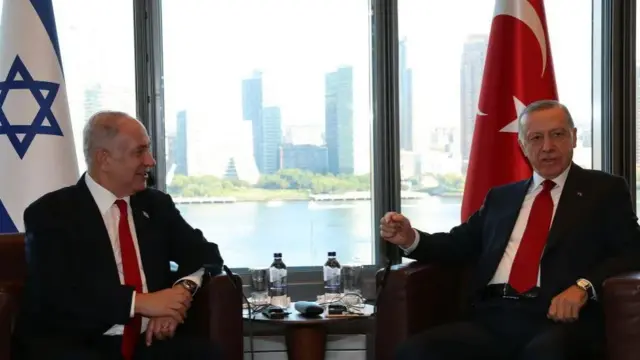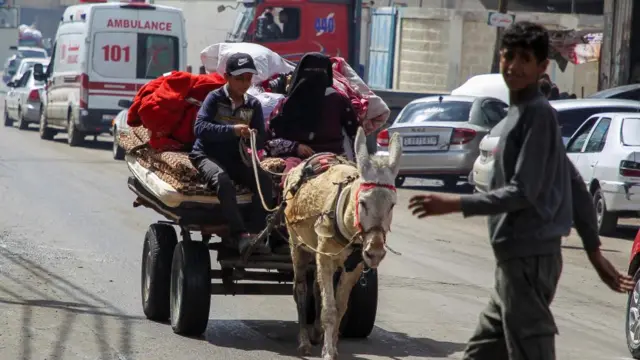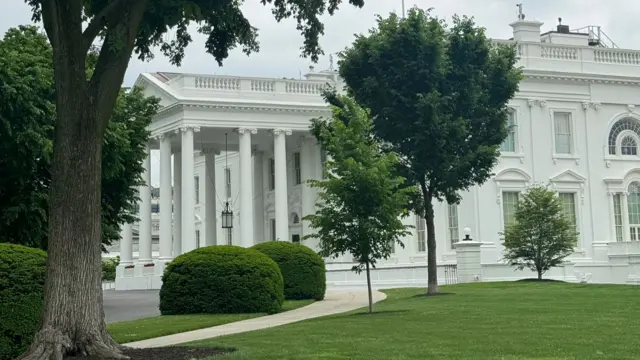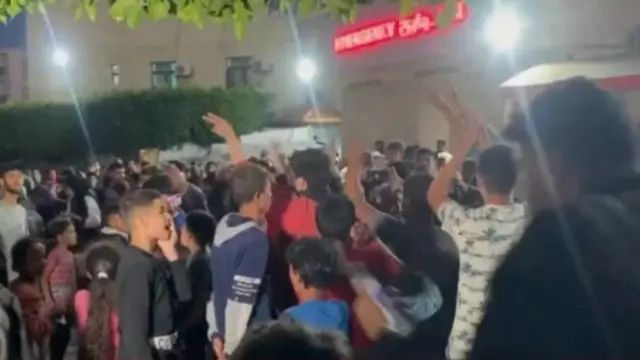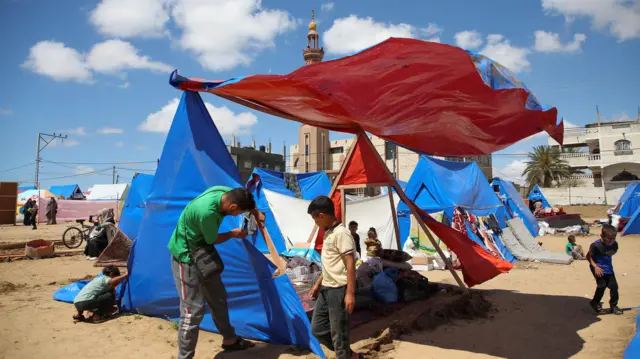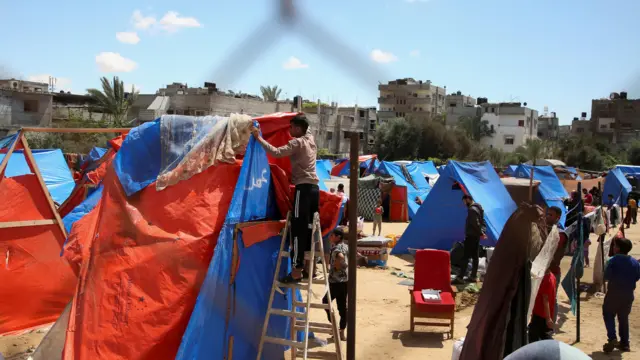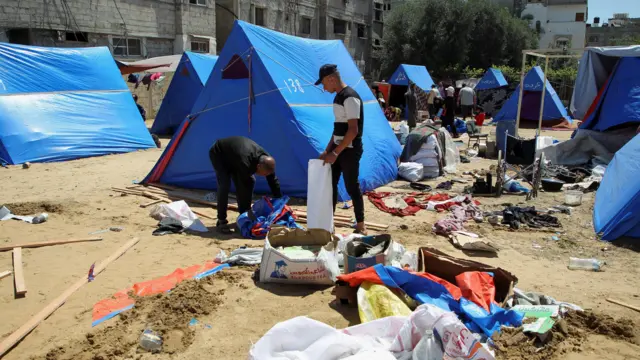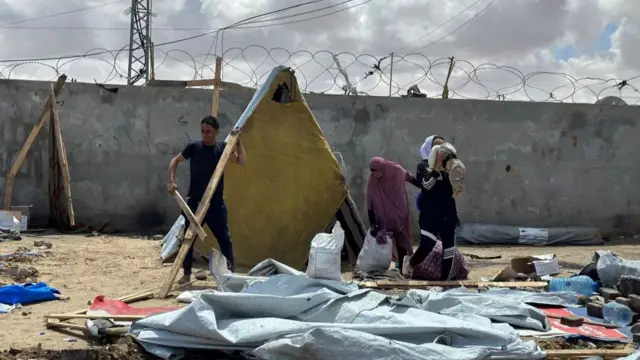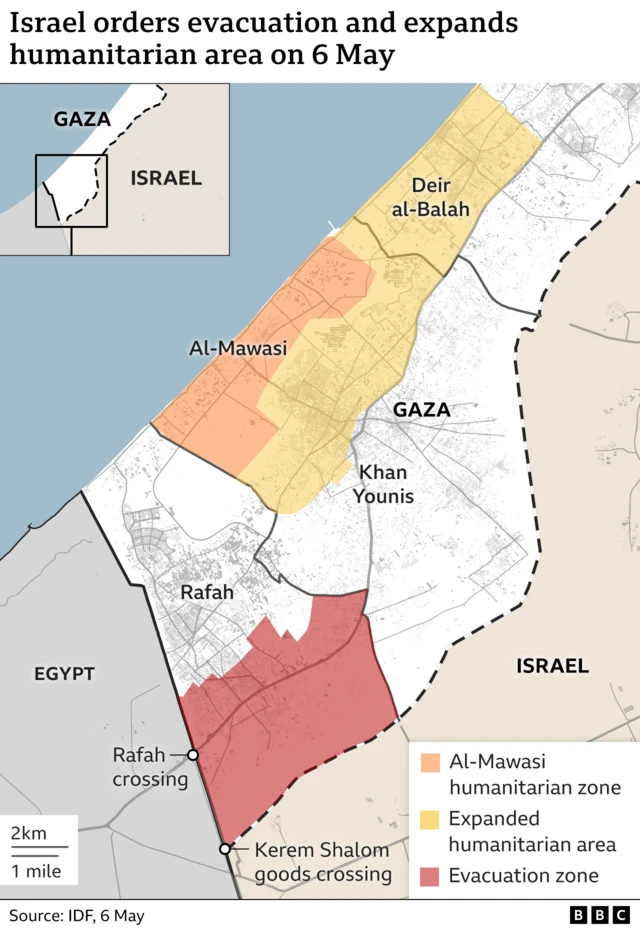IDF spokesman says Israel examining ceasefire dealpublished at 19:22 BST 6 May 2024
We're continuing to receive reports about what's happening on either side of this proposal - and trying to find out the finer details.
Israeli military spokesperson Daniel Hagari has now told a media briefing that Israel is examining the ceasefire proposal which Hamas says it's accepted. He's quoted as saying:
Quote MessageWe examine every answer and response seriously and are exhausting every possibility regarding negotiations and returning hostages.
Quote MessageIn parallel, we are still operating in the Gaza Strip and will continue to do so."



